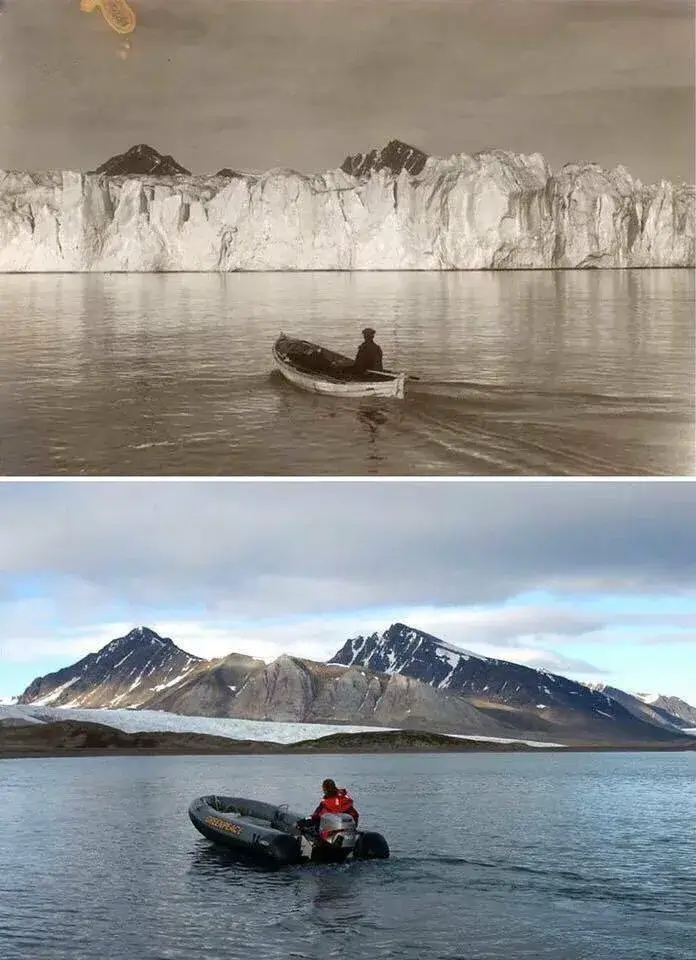It’s Not Too Late
Global warming seeped into our consciousness during the Carter administration in the late 1970s. Our burning of fossil fuels was pouring gigatons of pollution into the atmosphere and waters changing the chemistry and temperature of the planet, destroying the nature that sustains us, and creating an existential emergency for humans and other life on the planet. Over the ensuing years, the alarms have grown steadily louder.
 Planetary destruction remains the primary message today on climate change, with one major difference — we’re now told it’s too late – no chance to stave off draconian impacts. We had a chance, but our reaction has been too little too late. It’s the Pyrocene. The impacts we are experiencing now will be child’s play compared to what we’ll see in 2030.
Planetary destruction remains the primary message today on climate change, with one major difference — we’re now told it’s too late – no chance to stave off draconian impacts. We had a chance, but our reaction has been too little too late. It’s the Pyrocene. The impacts we are experiencing now will be child’s play compared to what we’ll see in 2030.
This is a version of the same story we’ve been told over and over the past few decades. We can’t do anything about climate change. It’s not real, it’s beneficial, not caused by humans, way off in the future, not going to harm us. There are worse problems that need attention. We can’t fix it because China won’t, solutions are too costly, or it’s simply too late. We need not and cannot do anything about climate change.
This steady and powerful stream of disempowering messages distracts us from the key point, they are not and never were true. Of course, we can solve climate change. Despite strong headwinds, scientists, governments, policymakers, businesses, and activists of all stripes — health, faith, frontline community and environmental — have made amazing progress over the past decade on the science, technologies, and policies we need to fix the problem. In fact, we’re in a better position now to solve climate change than ever before.
America and the world are rapidly shifting to a safer, healthier, and more prosperous future. We’ve shifted from fossil fuels to renewables for almost all new utility-scale electricity in America and the world. Car and truck makers are moving at breakneck speed to go electric, growing from 3 million (2020) to 40 million (2030) electric cars produced per year. Dozens of countries and thousands of communities and corporations are making pledges to cut emissions in half by 2030 and go net-zero by 2040 or 2050.
The economic and social benefits of moving away from fossil fuels are so irrefutable that the legacy powers behind the death-trap of fossil fuels have now shifted from opposing government regulation to lobbying for intervention in order to preserve their position in the market. They are working to stop community solar, raise the cost of clean energy, and get subsidies for dirty energy to keep them competitive in a world that has already rendered them obsolete — and they are so powerful they are having some success.
The benefits of switching to renewable energy as fast as we can are ginormous, if we save the planet and ourselves, and if we solve for climate change, we also solve for many of our other global challenges. The tipping point is just ahead. We came very close in 2021, and we can’t take our foot off the accelerator (not the gas pedal) now. With a slight bit more of public support and political will we can overcome the polluters and look forward to that healthy, safer, and prosperous future. All of us working on climate solutions of every kind need to make sure we focus on building the support we need by empowering every American, every day to mobilize on climate action.
Photo Credit http://www.christian.se/global-warming-retreating-glaciers
About ecoAmerica
ecoAmerica builds institutional leadership, public support, and political resolve for climate solutions in the United States. We help national mainstream organizations elevate their climate leadership, providing them strategy, tools and resources to: demonstrate visible climate leadership, empower climate literacy, engage all constituents, and build collective action and advocacy. We help our partners transform into national climate leaders who inspire others on solutions. ecoAmerica.org
Want the convenience of getting ecoAmerica’s newsletter and blog in your inbox? Subscribe today!